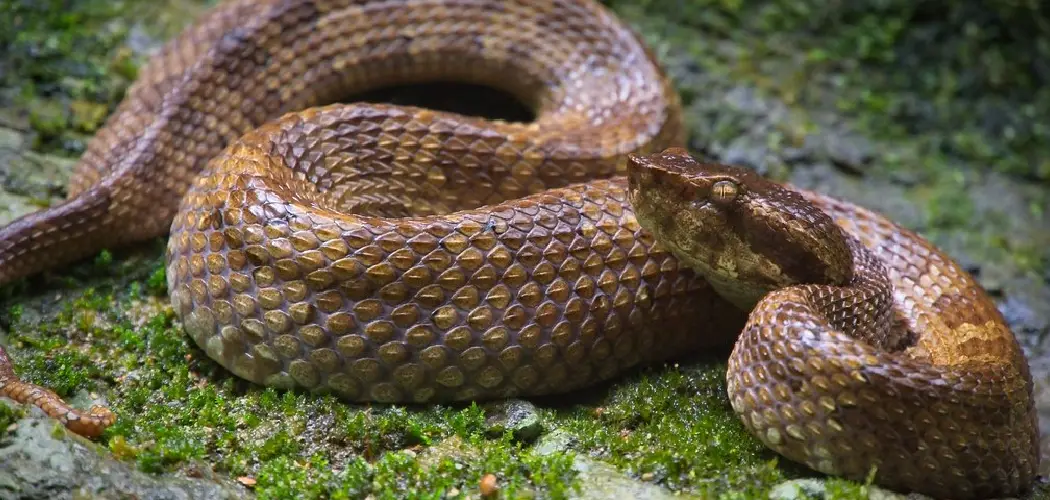Have you ever heard of the Okinawa Habu? If not, buckle up and prepare to be enlightened about its mysterious spiritual significance. This revered symbol can be found all over Japan’s Okinawa Islands, where it is both adored and feared for its dark power. But what does this spirit animal stand for? We’re here to uncover the mysteries surrounding the Okinawa Habu so that you can understand why this little creature has earned a place in Japanese culture and should be respected. Keep reading to learn how this magical spirit has been around for centuries and what habu spiritual meaning is!
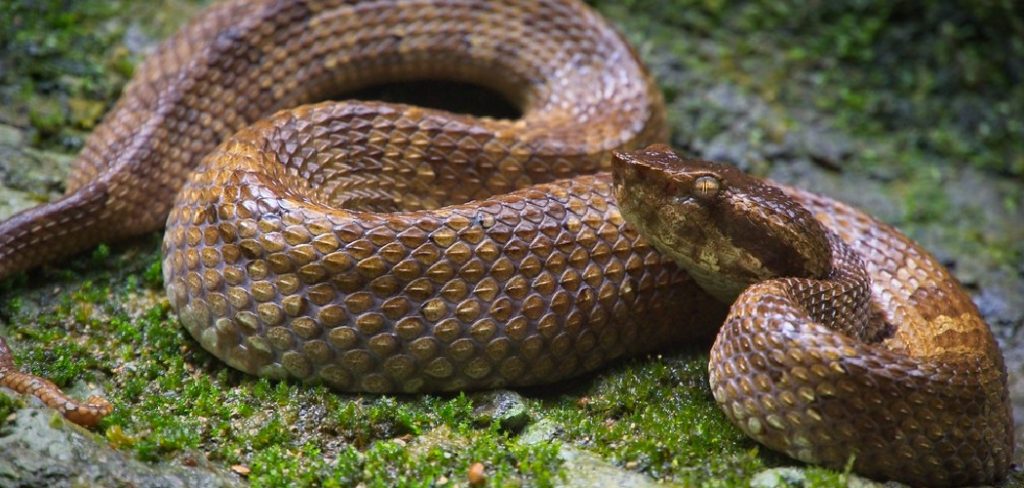
Okinawa Habu Symbolism and Meaning
Okinawa Habu Native American Symbolism
Okinawa Habu and Native American Symbolism may seem completely unrelated, but they share a fascinating connection regarding their symbolism. The Okinawa Habu, a venomous snake native to Okinawa, Japan, represents strength and power in Okinawan culture. Meanwhile, in Native American culture, the snake symbolizes transformation and healing.
The similarities between these representations suggest that strength and transformation are not mutually exclusive concepts. Both cultures recognize the importance of embracing one’s innate power and using it to transform oneself and the world around them. It’s remarkable how diverse cultures can share common themes, and exploring their connections can broaden our understanding of the world.
Okinawa Habu Eastern Symbolism
In Okinawa, the Habu snake has long been regarded as a symbol of strength, power, and ferocity. Known for its venomous bite and aggressive nature, the Habu has become integral to Eastern symbolism. From ancient times, Okinawans have revered it for its tenacity and fearlessness, a perfect embodiment of the culture’s warrior spirit.
But the Habu’s significance extends beyond Okinawa’s shores. In Eastern cultures, it is often associated with yin and yang, representing a balance between opposing forces. So, while the Habu may seem fearsome on the surface, it also serves as a powerful symbol of harmony and balance. Its place in Eastern symbolism continues today, inspiring awe and respect wherever it appears.
Okinawa Habu Christianity Symbolism
Okinawa Habu Christianity Symbolism is a fascinating combination of ancient and modern traditions. In Okinawa, the Habu snake is revered in local mythology as a symbol of protection and strength. But how did this ancient symbol come to be associated with Christianity?

According to local lore, the Habu snake was said to have saved a Christian missionary from attack by a wild boar. In gratitude, the missionary incorporated the Habu into his teachings as a symbol of the protective power of Christ. Today, the Habu is a common sight in Okinawan Christian churches, reminding worshippers of their religion’s and culture’s intertwined history.
Okinawa Habu Celtic Symbolism
Have you ever heard of the Okinawa Habu Celtic Symbolism? This fascinating topic intertwines the unique cultures of both Okinawa and the Celts. The Okinawa Habu is a venomous snake commonly found in Okinawa, Japan, and it has long been a symbol of strength and power in the region. However, it has been combined with Celtic knot-work and designs to create stunning art pieces in recent years. This new blend of cultures has resulted in a mesmerizing display of creativity that is not to be missed. So, explore the fascinating world of Okinawa Habu Celtic Symbolism and experience the beauty of blending cultures.
Okinawa Habu African Symbolism
Okinawa may not be the first place you think of when it comes to African culture, but the Habu snake found on the island has a surprising connection. The Habu snake is known for its nasty bite and has long been a symbol of strength and power in Okinawan culture. However, a lesser-known link exists between the Habu snake and African symbolism.
It is believed that the curling, intertwined shape of the Habu snake resembles the adinkra symbol from Ghana, which represents unity and interconnectedness. This connection between the Habu snake and African symbolism highlights the beauty and complexity of how cultures can intersect and influence each other, even across great distances.
Okinawa Habu Spiritual Meaning
For centuries, the Okinawan people have revered the habu, a venomous snake native to their island, as a symbol of strength and power. But beyond its physical attributes, the habu also holds spiritual significance in Okinawan culture. It is said that the habu’s venom has the power to protect against evil spirits and bring good luck. Many Okinawans wear habu-inspired jewelry or talismans to prevent negativity and ensure a prosperous life. Despite its notoriety as a dangerous predator, the habu has become an emblem of resilience and spiritual fortitude for the people of Okinawa.
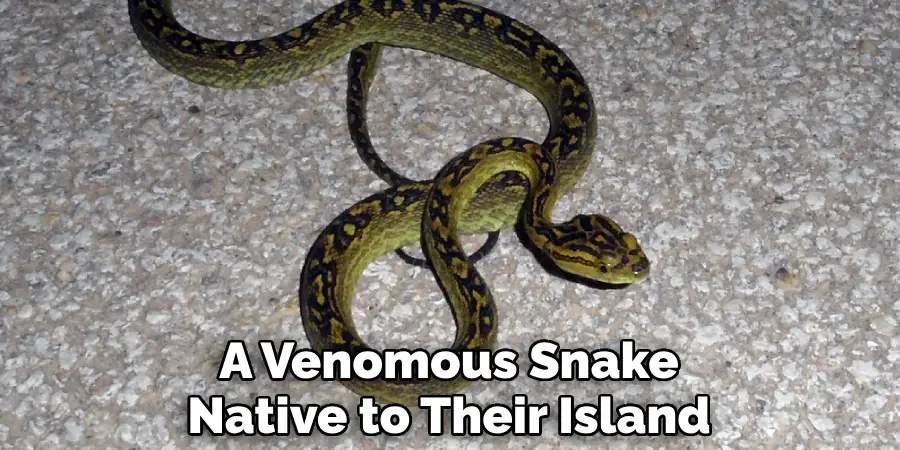
Okinawa Habu in Dreams
Okinawa Habu snakes are known for their potent venom and intimidating size. Even though encountering Habu in real life can be a scary experience, it’s interesting to note that they are a common feature in people’s dreams. These dreams could be related to the local mythology about the Habu being cursed creatures who bring bad luck, or perhaps they stem from the intriguing visuals associated with the snake’s striking colors and patterns.
For many, the Okinawa Habu symbolizes fear and respect, and seeing it in a dream could be a way of processing and dealing with these emotions. Whatever the reason behind dreaming about the Habu, one thing is certain – it’s an experience that’s hard to forget.
Okinawa Habu Encounters and Omens
Okinawa is a beautiful and mysterious destination that draws travelers in with promises of stunning beaches, delicious cuisine, and rich culture. However, visitors to the island may find themselves coming face-to-face with one of its more chilling inhabitants – the Okinawa habu. Known for its lethal venom and aggressive behavior, the habu has long been considered a fearsome creature in Okinawan folklore.
Many locals believe encountering a habu is an omen of bad luck or impending danger. While such encounters may be unnerving, they are also a testament to the intricate and intriguing beliefs held by the Okinawan people. So, if you’re lucky enough to spot a habu during your visit, take it as a reminder to embrace the mysteries of this fascinating island.
Okinawa Habu’s Meaning in Mythology and Folklore
Okinawa Habu, one of the deadliest snakes in the world, holds great significance in the mythology and folklore of Okinawa. It has been portrayed as a beastly creature with supernatural powers that terrify and mesmerize people at the same time. According to legend, the reptile was believed to be a deity that guarded the sacred burial grounds of the Ryukyu Kingdom.
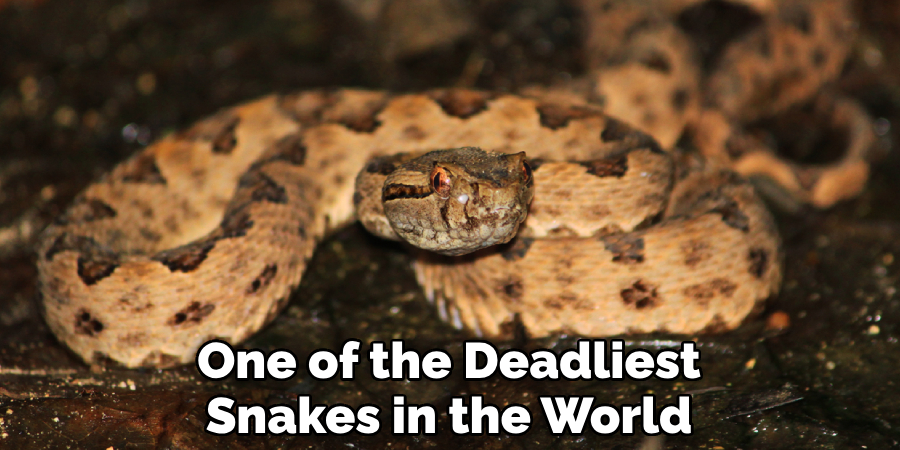
Its venom was said to carry magical properties used by shamans and healers to cure ailments or curse enemies. Many tales also describe the snake as a fierce adversary to be respected and feared. The Okinawan people have passed on these stories from generation to generation and have incorporated the Habu into their cultural identity. Today, the snake remains a fascinating subject for those who wish to learn more about Okinawa’s rich folklore and legends.
Okinawa Habu Totem Animal
Deep in the lush forests of Okinawa lies a creature that strikes fear in the hearts of those who dare to come across it. The Okinawa Habu, a venomous pit viper, is revered as the totem animal of the island. This slithering predator is a powerful symbol of strength, resilience, and protection in Okinawan culture. It’s distinctive markings and menacing presence have earned it a fearsome reputation among locals and visitors alike.
Yet, the Habu holds a sacred place in the island’s mythology, representing the unyielding spirit of Okinawa and the fierce determination of its people. Despite its deadly reputation, the Habu remains a beloved and powerful symbol of the island’s identity and character.
Okinawa Habu Tattoo Meaning
The Okinawa Habu tattoo is a powerful symbol with a rich history and meaning. The Habu, a venomous snake native to Okinawa, has long been a source of inspiration for the island’s people. In traditional Okinawan culture, the Habu represents strength, resilience, and protection. The snake’s sharp fangs and venomous bite make it a formidable opponent, and the Habu tattoo symbolizes one’s ability to overcome challenges and adversity.
Today, the Habu tattoo remains popular among Okinawans and visitors, providing a unique and meaningful way to connect with the island’s rich cultural heritage. Whether you’re drawn to the tattoo for its aesthetic beauty or its powerful symbolism, the Okinawa Habu tattoo is a powerful reminder of the strength and resilience within us all.
Okinawa Habu Spirit Animal
The Okinawa Habu has long been considered a strength, resilience, and determination symbol. This venomous snake, which can grow up to 10 feet in length and is known for its aggressive nature, has come to represent the unyielding spirit of the people of Okinawa. Despite facing countless challenges throughout its history, from invasions and occupations to natural disasters and economic hardship, the people of Okinawa have always found a way to persevere.
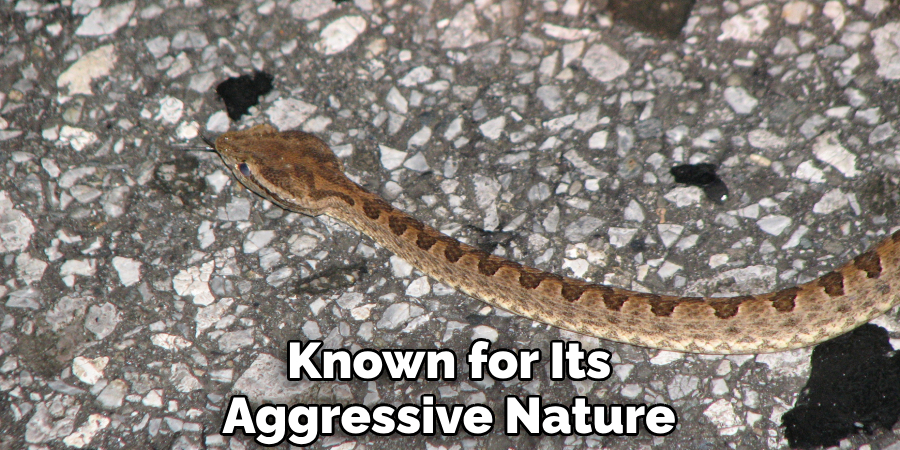
Just as the Habu fiercely defends itself against predators, Okinawans have a fierce sense of pride and loyalty to their community and culture. The Habu serves as a physical representation of this spirit and a reminder of the deep connection between Okinawan people and their natural environment.
Conclusion
Like many traditional symbols from around the world, Okinawa Habu is a reminder of our mortality and spiritual power. It speaks to deeper philosophies and symbols in Buddhism, Shintoism, Hongaku Shinto, and Aikido. So while the Okinawa habit may appear intimidating and dangerous, it still serves an important role in not only Okinawan culture but all Eastern philosophy.
In the end, this symbol’s message remains unchanged: respect your environment, practice discipline, and take care of one another so we all may benefit from a better life together. From cultivating spiritual understanding to creating inner peace or a sense of joined harmony with nature, the Okinawa Habit reminds us that ancient wisdom is always there when we are open enough to receive it. Thanks for reading our post about the habu spiritual meaning.
You Can Check It Out to Aesculapian Snake Spiritual Meaning, Symbolism and Totem

